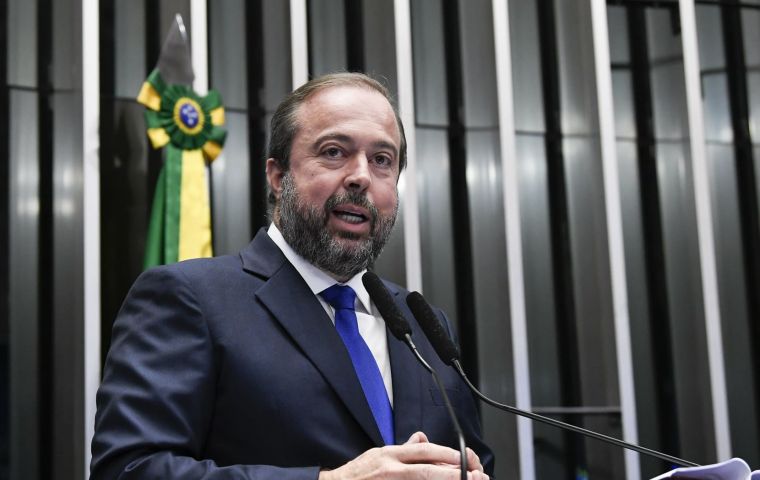MercoPress. South Atlantic News Agency
Brazil evaluating return to summer daylight saving time
 Silveira said there was no energy risk in 2024 but it was necessary to think with an eye on 2025 and 2026
Silveira said there was no energy risk in 2024 but it was necessary to think with an eye on 2025 and 2026 Brazil's National Electric System Operator (ONS) suggested the federal government implement a summer daylight saving time scheme as part of its contingency plan, Agencia Brasil reported Thursday. The measure is now under evaluation with a decision due in the coming days, according to Energy Minister Alexandre Silveira, who also explained that even if adopted, it may not necessarily last the whole summer.
“Today we have a planning policy for the electricity sector that is very much based on science and the search for a balance between energy security and better tariffs for the population. And based on that, we're going to analyze the situation,” said Silveira after an ONS meeting in Rio de Janeiro in which it was deemed prudent to adopt such a mechanism.
“Objective data was presented on the water crisis we are going through in Brazil. Cemaden has been measuring national rainfall over the last 74 years, since 1950. And today we have the lowest rate of this entire period,” he added while pointing out that there was no energy risk in 2024 thanks to the planning adopted. However, he underlined the need to think in the long term, with an eye on 2025 and 2026.
“If it were an indication that pointed directly to energy risk, we wouldn't have any doubts about adopting daylight saving time. Obviously, giving the necessary time for planning by the various sectors of the economy and society. But I'm still not convinced of the need for the measure. It has been shown to be economical, it has been shown to increase our reliability. But, considering the peace of mind that there will be no shortage of energy in Brazil thanks to the planning we have implemented, I still believe that we need to evaluate alternatives before adopting this decision. Because it affects the lives of all Brazilians,“ the official also pointed out.
“We want to talk not to help us decide. It's to be able to better understand what the planning timeframe would be for strategic national sectors. Decisions must be based on planning and science. The manager has to have the courage to take certain measures, regardless of whether they please or displease any sector,” he further noted while citing Canada as an example of another country that adopts the mechanism.
Established in 1931 in Brazil, daylight saving time ran continuously from 1985 until 2019, when the past government decided to revoke it in April 2019, claiming that it was ineffective in saving energy.
“It was a huge irresponsibility with no scientific basis. As a result, in 2021, we were on the brink of energy collapse in Brazil. It cost the Brazilian people a loan of more than R$5 billion to deal with the hybrid shortage. At that time, energy bills went up by more than 20%. We lived through a period of negationism in Brazil in every sense,” said Silveira.
“Today we don't have a power generation problem, even with this serious water crisis. But we have a time of day, between 6 pm and 9 pm, when we need to dispatch almost all of our thermal park. This costs more and puts more stress on the system. We have to consider the savings for the consumer. And also take into account that the electricity sector always has to take into account any intervening events. It has to keep some slack,” he also explained.
“Some technicians will say that peak hours are no longer between 6 pm and 9 pm, but between 2 pm and 4 pm. In fact, between 2 pm and 4 pm, there is greater demand from a transmission point of view. However, during this period, we are at the peak of the generation of renewable energy, such as solar energy,” he also argued.




Top Comments
Disclaimer & comment rulesNo comments for this story
Please log in or register (it’s free!) to comment. Login with Facebook